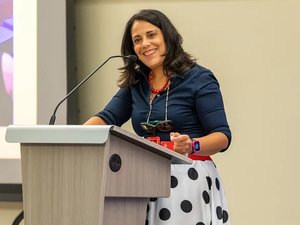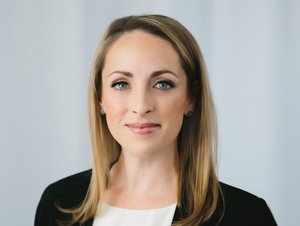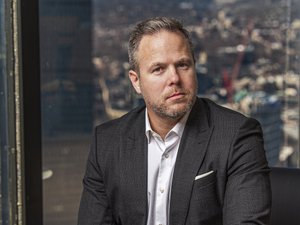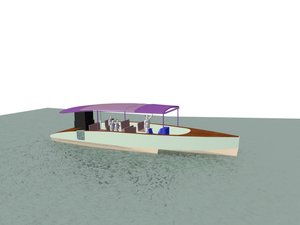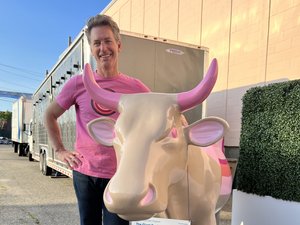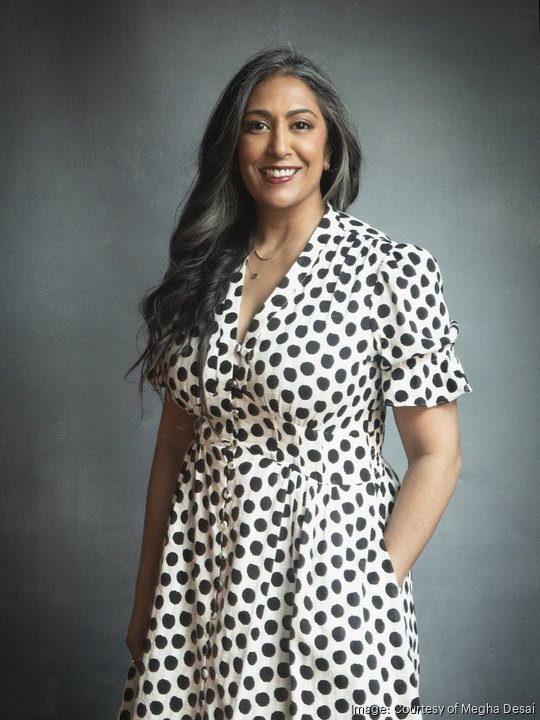
Megha Desai was just starting college in 1997 when her parents, Samir A. Desai and Nilima Desai, started the Desai Foundation. The organization has evolved over the years to now run health, livelihood and menstrual equity programming primarily in India.
Samir was the founder and CEO of System Resources Corp., a Boston-based aviation and defense contractor which was bought by San Diego-based Titan Corp. in 1999. He is also a founding member of TiE, an entrepreneurship nonprofit with a Boston chapter.
“He really wanted to give back to the community. And he wanted to give back to both the entrepreneurial community here in Massachusetts, as well as the community that helped raise him in India,” Megha said.
For 15 years, the Desai Foundation operated as a family foundation, experimenting with different programming, before it decided to become a public non-governmental organization and focus on growing its impact.
As this transition was occurring, Megha stepped away from her career in marketing and advertising to lead her family’s organization. She took over as president of the Desai Foundation seven years ago to spearhead its expansion.
“When I was handed the organization, we were in 250 villages in one state (in India), and today we are in eight states and close to 3,000 villages,” Megha said.
The Desai Foundation’s programming now includes kids' health fairs, which feature rides, performers, stations about healthy habits and medical checkups. The organization also runs sewing and beautician classes where participants learn the craft and entrepreneurship skills. The Desai Foundation’s menstrual equity program includes awareness sessions, producing and distributing their own pads, and campaigns to talk about menstruation.
Megha spoke to BostInno about leading a nonprofit that recently garnered the attention of Sec. Hillary Clinton, connecting her entrepreneurship work in India to her new role as board member at TiE Boston and her personal experience with menstrual equity.
Growing up in Lincoln, Massachusetts, was menstrual equity something you thought about?
I was not really aware of the poverty side of things, but I was deeply aware of the stigmas. In my very own home, despite my parents being very modern and very progressive, I was not allowed to pray on my period. And I remember it being a huge point of contention for me, a Hindu Brown kid growing up in a very white Catholic state. And on Mondays through Fridays I’m working really hard to fit in. And then on Saturdays and Sundays it’s like all the South Asian community parties and Sunday school and Indian dance class. So suddenly I’m kind of Brown on the weekends and connecting with my religion in that environment was hard. There were these little gaps that always kind of frustrated me where I was like, “What do you mean I can’t pray? God loves me 365 days a year. They don’t not love me when I’m bleeding, when I need them the most.”
What does the stigma around menstruation look like in India?
When we were in the first 10 years of the organization, we would visit schools and I kept asking the question, “Where are the girls?” There are a lot of layered reasons why there were fewer girls in the school. Things about not feeling like it was important to educate a girl, etc. But a lot of the answer I was hearing was there are no bathrooms in this school.
The Desai Foundation has grown rapidly over the last seven years with you as president. To what do you attribute that?
I think the number one reason is we have a rockstar team in India. I think the second reason is because of these really clear programs that we’ve developed that are sustainable, repeatable and impact driven. The third reason is because of the Boston community. We have been supported by an incredible group of thousands of people in the Boston community that have come out to our events, like Lotus Festival, which is our annual gala, and supported us and written us checks.
The work hasn’t gone unnoticed. Earlier this year Sec. Hillary Clinton visited a small village outside Gandhinagar to meet people who worked in your Covid relief and recovery initiative. What was it like to meet her?
She has been an advocate for women’s rights and for child rights her entire career. And a very successful one at that. So to have someone with that background come and share her enthusiasm for the work was really, really spectacular. It all just came together so fast and we were really deeply surprised that she selected our organization to visit and I’m really honored.
This year you joined the board of TiE Boston. How do you bring your work at Desai Foundation into this new role?
To really think about how our entrepreneurs are engaging with women to make sure that there is equitable balance on their boards, in the communities, in support, in sharing those connections. I think that’s one of the things that women often see is that boys share their connections with the boys and then the girls are left trying to figure it out. There’s only so few connections that it becomes this trickier bit.
The second is given my background in nonprofit, how do we look at our responsibilities as entrepreneurs, as a successful group of individuals, to our community, to our environment, to our homelands.
Sign up for The Beat, BostInno’s free daily innovation newsletter from BostInno reporter Hannah Green. See past examples here.
